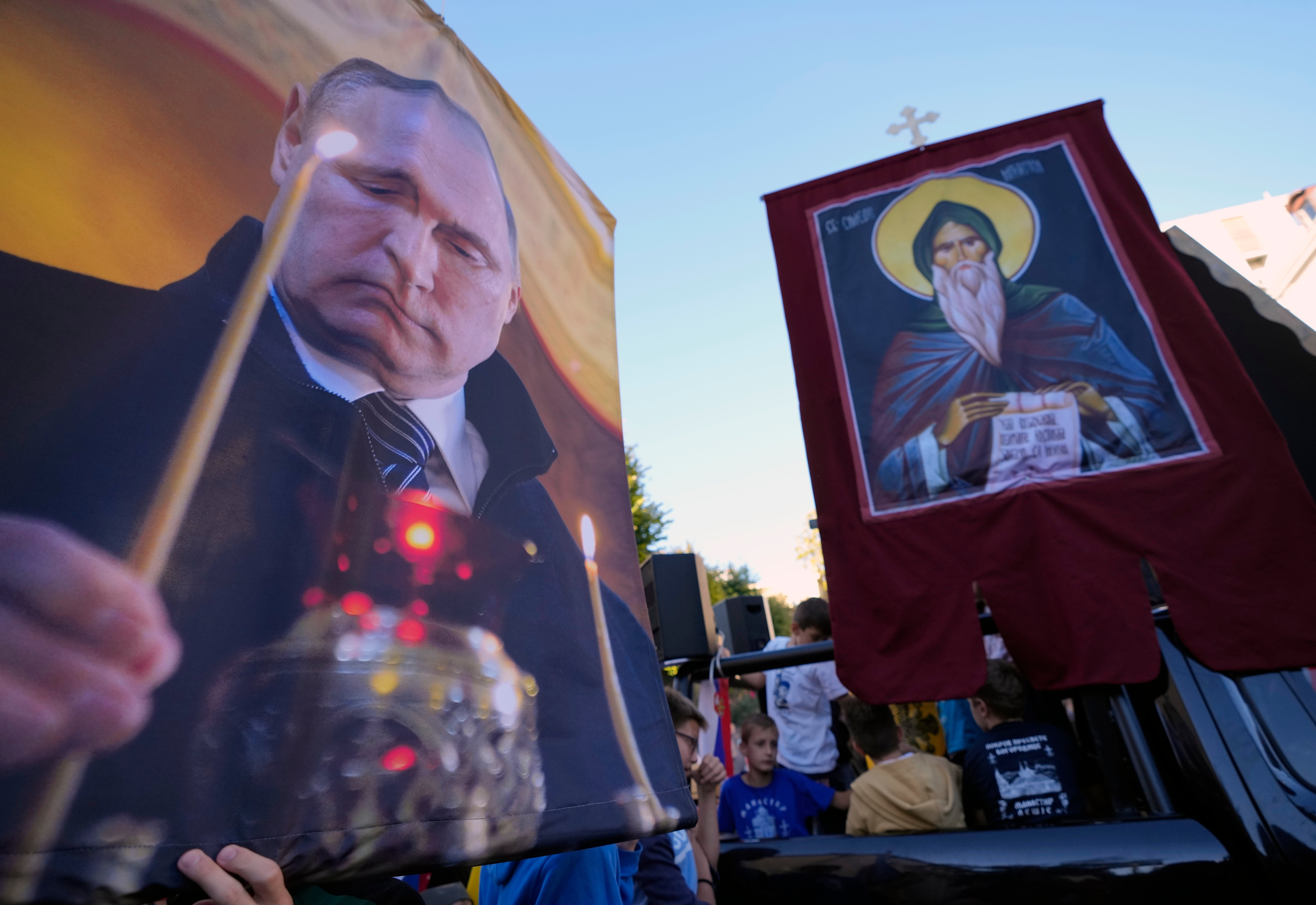Russia bans adoption from countries where gender transitioning is legal
A bill also outlawed the spread of material that encourages people not to have children

Your support helps us to tell the story
From reproductive rights to climate change to Big Tech, The Independent is on the ground when the story is developing. Whether it's investigating the financials of Elon Musk's pro-Trump PAC or producing our latest documentary, 'The A Word', which shines a light on the American women fighting for reproductive rights, we know how important it is to parse out the facts from the messaging.
At such a critical moment in US history, we need reporters on the ground. Your donation allows us to keep sending journalists to speak to both sides of the story.
The Independent is trusted by Americans across the entire political spectrum. And unlike many other quality news outlets, we choose not to lock Americans out of our reporting and analysis with paywalls. We believe quality journalism should be available to everyone, paid for by those who can afford it.
Your support makes all the difference.Russian politicians have endorsed a bill banning adoption of Russian children by people of countries where gender transitioning is legal.
It comes as the Federation Council also approved bills that outlaw the spread of material that encourages people not to have children.
The bills, which have previously been approved by the lower house, will now go to President Vladimir Putin for signing.
They follow a series of laws that have suppressed sexual minorities and bolstered longstanding conventional values.
The lower house speaker, Vyacheslav Volodin, who was among the new bill’s authors, has noted that “it is extremely important to eliminate possible dangers in the form of gender reassignment that adopted children may face in these countries.”
The adoption ban would apply to at least 15 countries, most of them in Europe but including Australia, Argentina and Canada. Adoption of Russian children by U.S. citizens was banned in 2012.

Other bills approved by lawmakers on Wednesday outlaw what is described as propaganda for remaining child-free and impose fines of up to 5 million rubles (about $50,000). Its proponents contended that public arguments against having children are part of purported Western efforts to weaken Russia by encouraging population decline.
Putin and other top officials in recent years have increasingly called for observing so-called traditional values as a counter to Western liberalism. As Russia’s population declines, Putin has made statements advocating large families and last year urged women to have as many as eight children.
Russia last year banned gender-transition medical procedures and its Supreme Court declared the LGBTQ+ “movement” to be extremist.In 2022, Putin signed a law prohibiting the distribution of LGBTQ+ information to people of all ages, expanding a ban issued in 2013 on disseminating the material to minors.
Since he sent troops into Ukraine in February 2022, the Kremlin leader has repeatedly characterized the West as “satanic” and accused it of trying to undermine Russia by exporting liberal ideologies.
Independent journalists, critics, activists and opposition figures in Russia have come under increasing pressure from the government in recent years, intensifying significantly amid the conflict in Ukraine. Hundreds of nongovernmental groups and individuals have been designated as a “foreign agent” — a label that implies additional government scrutiny and carries strong pejorative connotations.
On Wednesday, the lower house of parliament, the State Duma, gave preliminary approval to a bill that would ban those who have been designated “foreign agents” from accessing their incomes. The measure would freeze all their Russia-generated income on special accounts and would only allow them access to the funds if their “foreign agent” status is revoked.V
olodin, the lower house speaker, has said that the proposed legislation was aimed at preventing “the enrichment of traitors to the motherland at citizens’ expense.”
Join our commenting forum
Join thought-provoking conversations, follow other Independent readers and see their replies
Comments